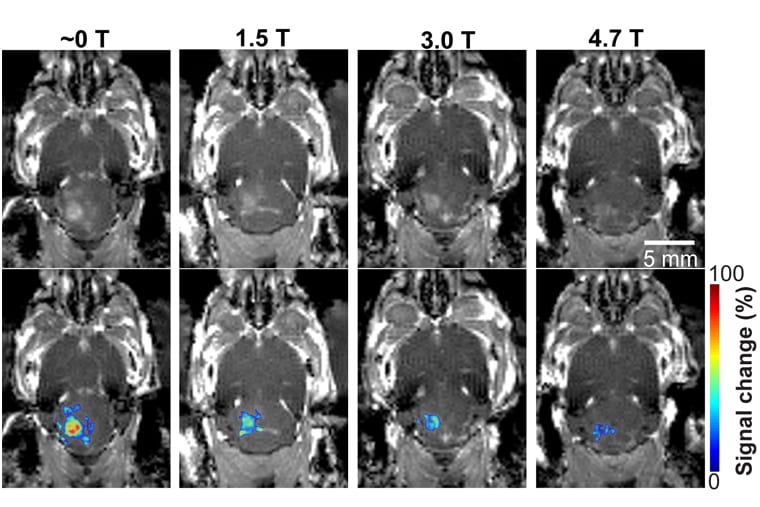MRI-guided focused ultrasound combined with microbubbles can open the blood-brain barrier and allow therapeutic drugs to reach the diseased brain location under the guidance of MRI. It is a promising technique that has been shown safe in patients with various brain diseases, such as Alzheimer’s, Parkinson’s, amyotrophic lateral sclerosis (ALS) and glioblastoma.

While MRI has been commonly used for treatment guidance and assessment in preclinical research and clinical studies, until now, researchers did not know the impact of the static magnetic field generated by the MRI scanner on the blood-brain barrier opening size and drug delivery efficiency.
In new research published July 6 in Radiology, Hong Chen, PhD and her lab at Washington University in St. Louis have found for the first time that the magnetic field of the MRI scanner decreased the barrier’s opening volume by 3.3-fold to 11.7-fold, depending on the strength of the magnetic field, in a mouse model.
“Findings from this study suggest that the impact of the magnetic field needs to be considered in the clinical applications of focused ultrasound in brain drug delivery,” Chen said.
Read more on the engineering website.
